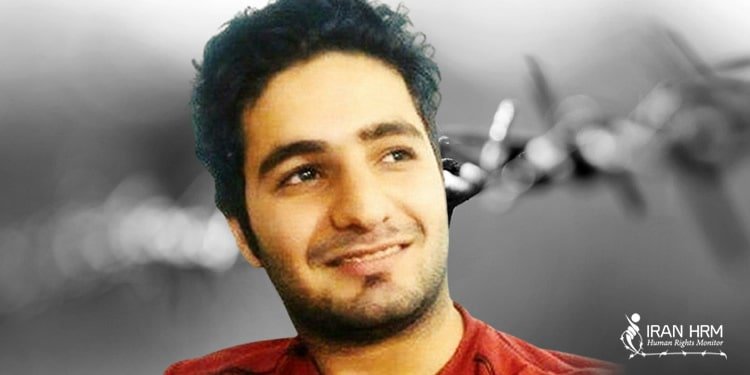Iran-HRM – An Iranian jailed protester who is detained in the Greater Tehran Penitentiary (GTP) was transferred to another ward alongside common criminals immediately after he disclosed the dire conditions in the prison.

Under the excuse of interrogation, political prisoner Hossein Hashemi was summoned on Tuesday, June 1. He was then transferred to the 4th ward of the prison where he has been locked up in the same area as criminals who had committed serious offences, such as murder, in breach of Iranian law and international standards.
Hossein Hashemi, arrested for taking part in the nationwide protests in November 2019, wrote a letter from the prison in May 2021 describing the appalling conditions in the GTP.
It is said that his transfer follows a verbal argument with Eliassy, the supervising prosecutor of the Evin court. He had previously threatened to move Hossein Hashemi to a place where he would regret his actions.
In recent days, Eliassy has threatened political prisoners, especially protesters arrested in November 2019, that they will soon be transferred separately to wards where violent criminals are held.
In recent days, a number of political prisoners in GTP were transferred to non-political sections under the excuse that their “security” charges had changed to non-political ones.
In a letter announcing his hunger strike, Hossein Hashemi said: “It has been almost 19 hours since I went on a wet and dry hunger strike. The last thing I drank was a cup of tea with water full of silica in ward 2 of the hall 10 where November 2019 protesters are being held. So far I have refused eating and drinking. Early in the morning (Tuesday), under the pretext of interrogation, they took me out of the political ward. When I reached the guard officer, he was fully prepared for my transfer. Prison officials said I had to go outside ward two for interrogation. I had to get in a van and they took me to the ward 4, among the prisoners convicted of violent crimes, murder and armed robbery. About two years ago, they took out Alireza Shir Mohammadali from the ward under the same pretext, and after 3 days, we heard the news of his death. I, Hossein Hashemi, one of the protesters arrested in November 2019 and sentenced to six years in prison, am in exactly the same situation as Alireza was two years ago. The only difference is that I went on a wet and dry hunger strike. Before I was killed, I took this step to convey my voice to you, the people of Iran.”
The Iranian regime is obliged to keep prisoners in different sections based on the severity of their crimes and their prior records.
Article 69 of the prisons organization’s regulations states that: “All convicts, upon being admitted to walled prisons or rehabilitation centers, will be separated based on the type and duration of their sentence, prior record, character, morals and behavior, in accordance with decisions made by the Prisoners Classification Council.”
By violating the principle of separation of crimes, the regime’s judiciary detains political prisoners among common and dangerous criminals. This commonly practiced tactic prepares the grounds for physical elimination of the regime’s opponents.
Political prisoner Alireza Shir Mohammadali was stabbed to death by two inmates in the infamous Greater Tehran Penitentiary on June 10, 2019.
The 21-year-old activist had been sentenced to eight years in prison for “spreading propaganda against the regime,” and insulting the founder of the mullah’s regime, Khomeini and its current Supreme Leader Ali Khamenei.
Between March 14 and April 19, 2019, the young prisoner had gone on hunger strike to protest the dangers facing inmates in the ward.
 Shabtabnews In this dark night, I have lost my way – Arise from a corner, oh you the star of guidance.
Shabtabnews In this dark night, I have lost my way – Arise from a corner, oh you the star of guidance.



